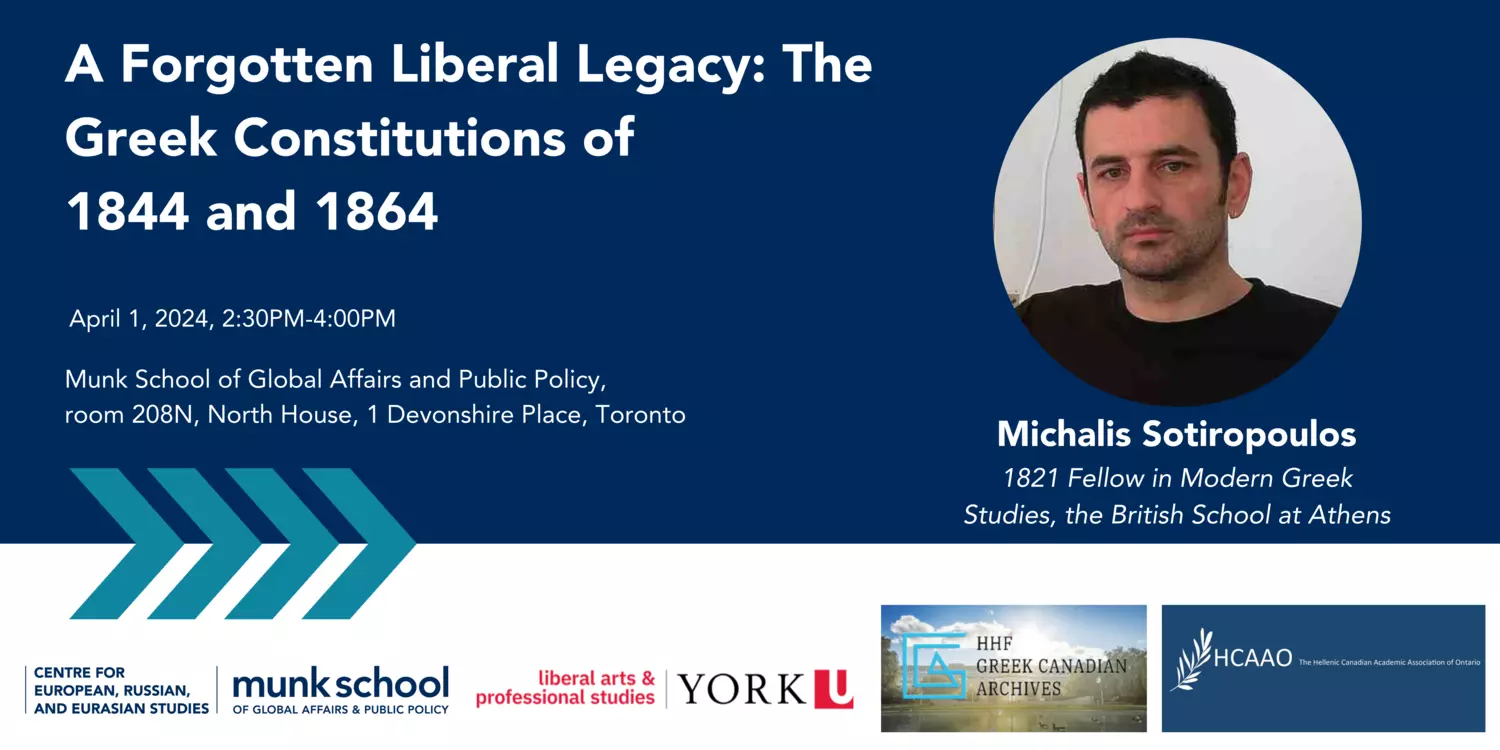
A Forgotten Liberal Legacy: The Greek Constitutions of 1844 and 1864
April 1, 2024 | 2:30PM - 4:00PM
|
In-person
This event took place in-person at Room 208N, North House, 1 Devonshire Place, Toronto, ON, M5S 3K7
The modern Greek monarchical state, initially in effect absolutist, was reshaped by two moments of revolt: 1843, when the king was forced to grant a constitution sanctioning a national parliament; and 1862, when he was forced to abdicate, opening the way for a new constitutional process, the election of a new king, and the promulgation of a new, remarkably liberal constitution. Although both these processes led to important political transformations and were instrumental for the formation of the early Greek state, they have received surprising little attention from historians. This lecture sought to turn this state of affairs around by revisiting these moments, and by locating them in the political and intellectual context of their era – both domestic and international. In so doing, it aimed to shed new light on how and why these transformations came about; assess the liberal language that informed them, and was informed by them; and evaluate the short-term and long-term effects of these liberal transformations, and their significance for our understanding of the history of modern Greece.
About the Speaker
Michalis Sotiropoulos, FRHistS, is a historian of modern Europe specializing in the intellectual history of the Mediterranean and the Greek world in the long nineteenth century. Michalis has earned a PhD from the University of London and is currently the 1821 Fellow in Modern Greek Studies at the British School of Athens, while in October 2024, he will join the University of Edinburgh as a Lecturer in Modern Greek Studies. His publications include studies of the Greek Revolution of 1821, on law and the formation of states, and on the historiography on the Age of Revolutions, while his monograph Liberalism after the Revolution: The Intellectual Foundations of the Greek State, ca. 1830-1880 was recently published by Cambridge University Press.
Sponsored by the Centre for European, Russian, and Eurasian Studies, the Hellenic Studies Initiative at University of Toronto, the HHF Chair in Modern Greek Studies at York University, the Graduate Diploma in European Studies at York University, and the Hellenic Canadian Academic Association of Ontario.